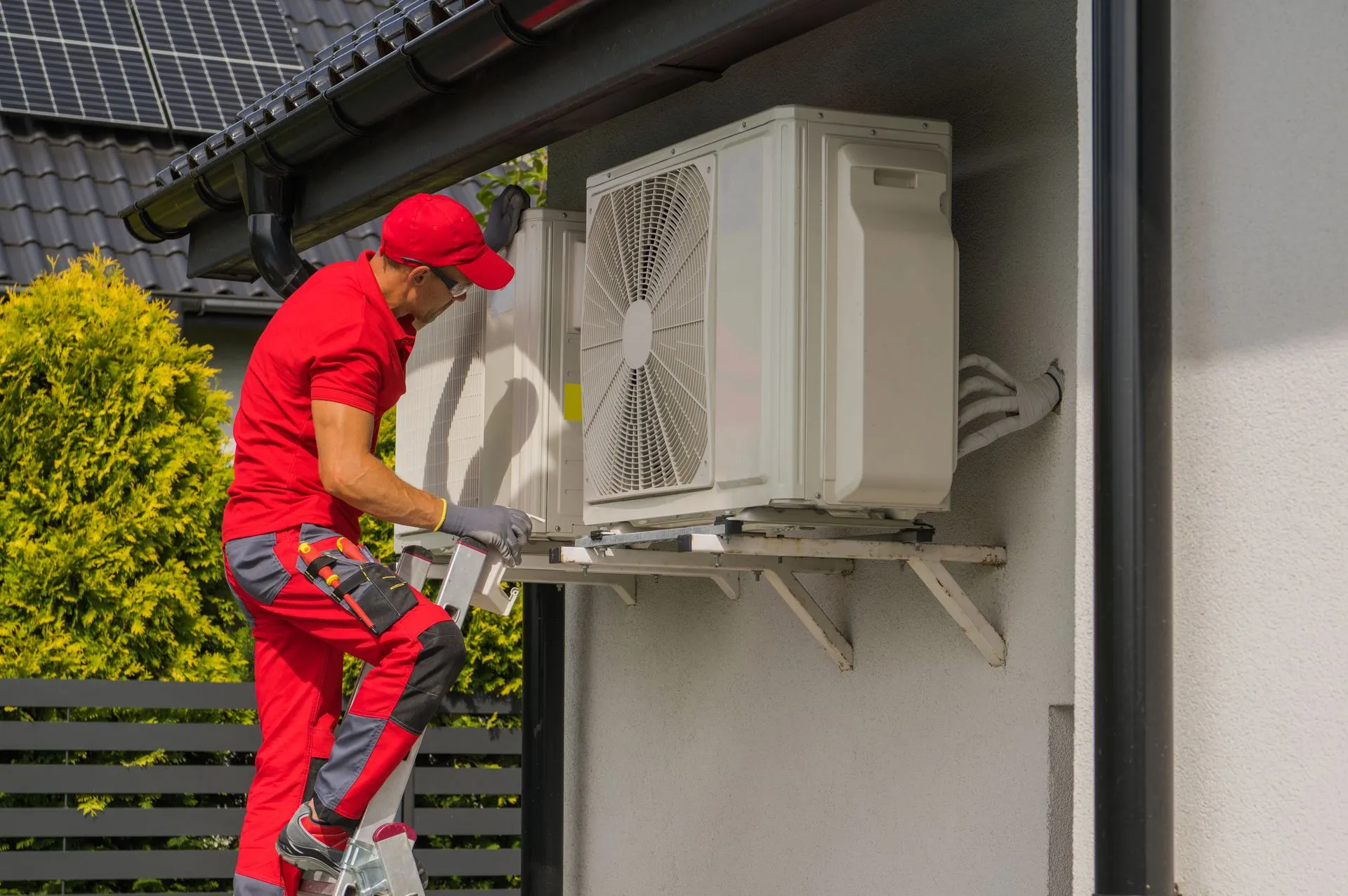
Standard homeowners know that maintenance is inevitable for their properties as doing this on time keeps them habitable and retains their initial value. When installed properly, an HVAC system is one of the best parts of the rental both the landlord and tenant should manage it well.
Dirty HVAC systems pose serious health risks to renters and could create a more significant problem for the landlord in the future.
It’s safe to say that the foundation of tenant experience and comfort is the HVAC system. So, as a landlord, it’s best to maintain and repair each component of your rental regularly.
Understanding and proactively keeping up the HVAC system in your rental property is also essential since paying less attention to it can result in expensive repairs and decreased energy efficiency.
Proactive HVAC maintenance benefits landlords and tenants by increasing property value and operational efficiency while improving tenant retention. Whether you’re a seasoned landlord or new to the rental market, you can confidently handle the complexities of HVAC systems with the help of this guide.
Why is Proactive HVAC Maintenance Important?
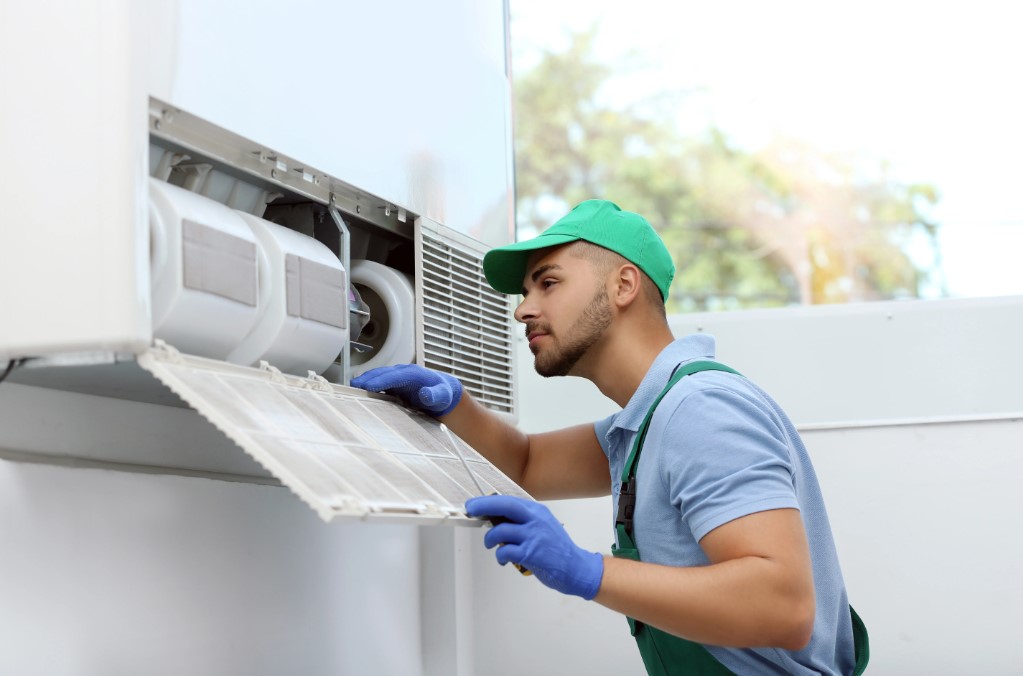
The health and comfort of tenants are the first and foremost reasons why proactive HVAC maintenance is so essential. Well-maintained systems provide consistent heating and cooling, which is vital in preserving a comfortable living space.
In addition to creating healthier living environments, well-maintained HVAC systems lower allergens, dust, and other pollutants in the indoor air. Visit Bay Property Management Group’s website to help communicate with tenants if they have basic maintenance-related questions.
However, from a financial standpoint, proactive maintenance increases the lifespan of HVAC systems and saves money in the long term by preventing expensive emergency repairs. Also, frequent servicing and inspections help find minor problems early on and fix them before they get worse and cost more. This element can improve tenant satisfaction and retention, save money, and minimize tenant disturbances.
Another essential advantage is energy efficiency. Well-maintained HVAC systems use less energy, which lowers the overall carbon footprint of the building and utility costs. This efficiency can be a selling point for renters who care about the environment and can support larger goals for environmental sustainability.
All these show that landlords can maintain an efficient HVAC system through preventative maintenance that brings long-term benefits for landlords and tenants. At the end of the day, proactive HVAC maintenance is a wise investment that protects the landlord’s investment and reputation while also improving tenant well-being, cutting operating expenses, and encouraging energy efficiency.
Seasonal Considerations of HVAC Maintenance
The demands placed on your HVAC system vary with the seasons. Whether fighting the winter’s bitter winds or the summer’s heat, your HVAC system is essential for maintaining year-round comfort on the property.
However, to ensure its optimal performance, it’s vital to give your system the necessary attention it requires through regular seasonal maintenance:
Spring
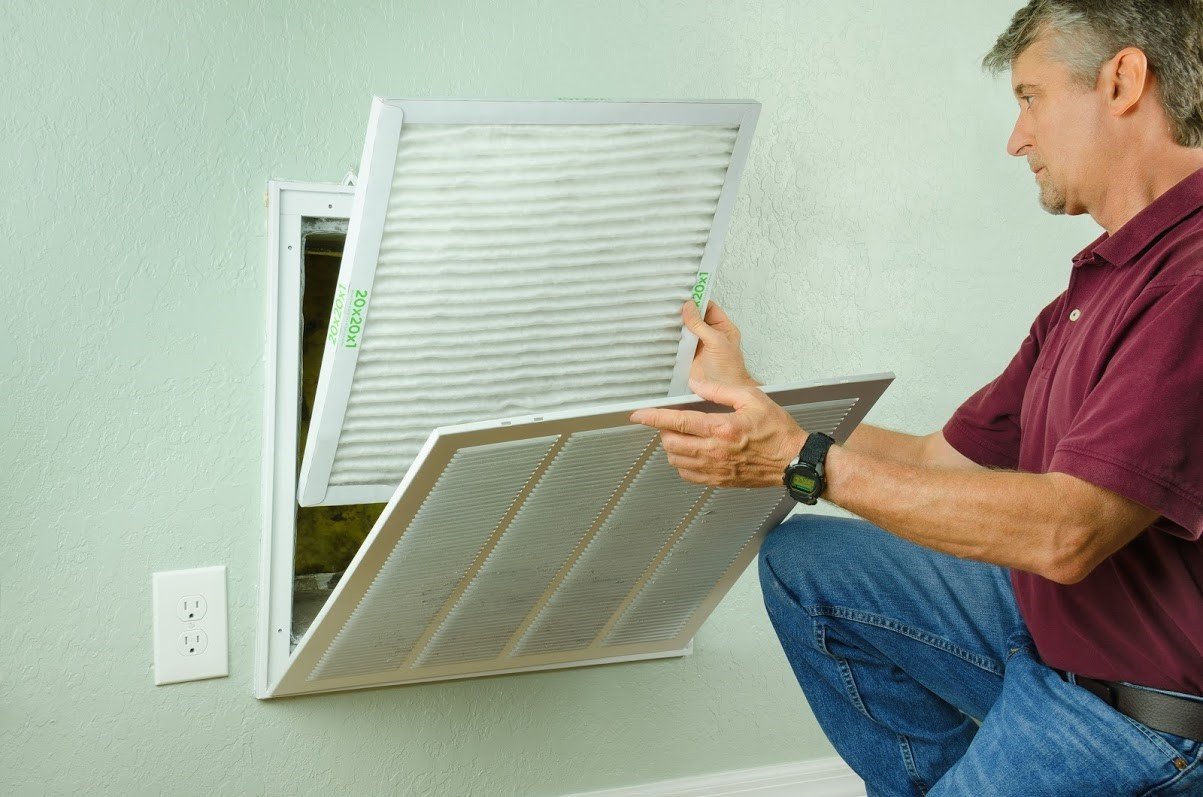
Change your air filters
Pollutants and allergens that are present in the spring can clog your filters. To keep the HVAC system from overworking and to ensure optimal indoor air quality, change the air filters every one to three months.
Examine the outside unit
Remove any leaves, twigs, or debris the winter may have brought to your outdoor unit. Ensure two feet of space between you and the unit for good ventilation.
Examine the ductwork
Inspect the ductwork for any signs of damage or leaks. It can decrease your system’s efficiency and waste energy by leaking ducts. This should seal off any holes with the proper duct sealant.
Plan Professional Maintenance
Consider planning a springtime professional HVAC inspection and maintenance visit. A trained specialist will examine, maintain, and adjust the system, identifying possible problems before they become more serious.
Make a list
Making a list is one way to organize your thoughts and prepare for your appointment. In the past year, did the air conditioning system make any noises? Did you have any worries while operating your unit?
Are you worried about the general cooling of your home? You can ensure that you assist your service technician during your appointment by considering these factors and questions.
Summer
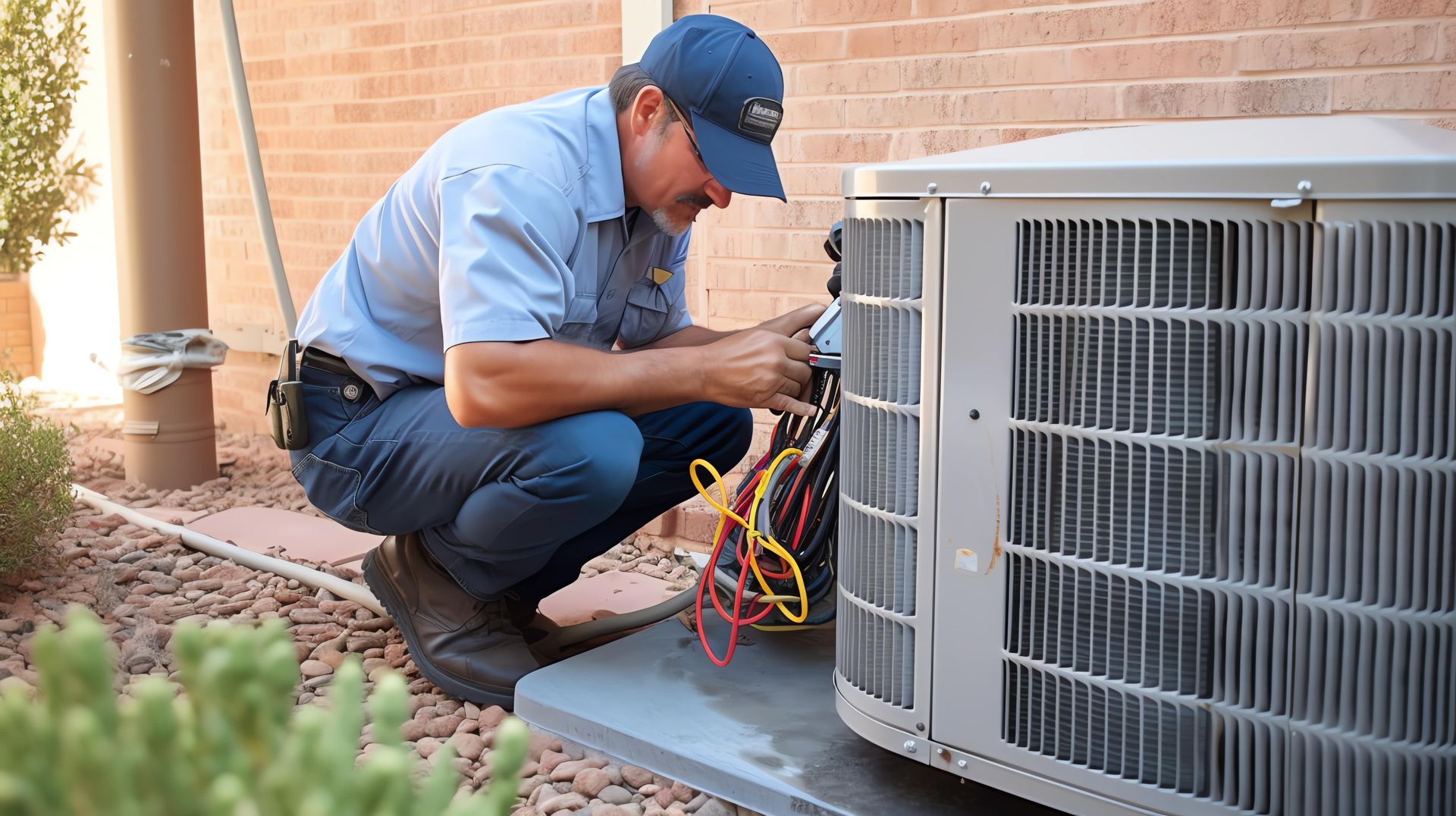
Clean Condenser Coils
Debris and dirt buildup on the system’s external condenser coils can lower efficiency. To guarantee ideal heat transfer, clean the coils frequently.
Keep an eye on your refrigerant levels
Low refrigerant levels may cause the HVAC system to malfunction and perform poorly. Plan an expert inspection to guarantee appropriate refrigerant levels.
Adjust the thermostat
To ensure accurate temperature readings, check and recalibrate your thermostat. To optimize energy efficiency, consider investing in a bright or programmable thermostat.
Fan Blade Inspection
Landlords should be able to verify that the outdoor unit’s fan blades are balanced and clean. Unnecessary damage from the normal wear and tear can result from imbalanced blades.
Fall
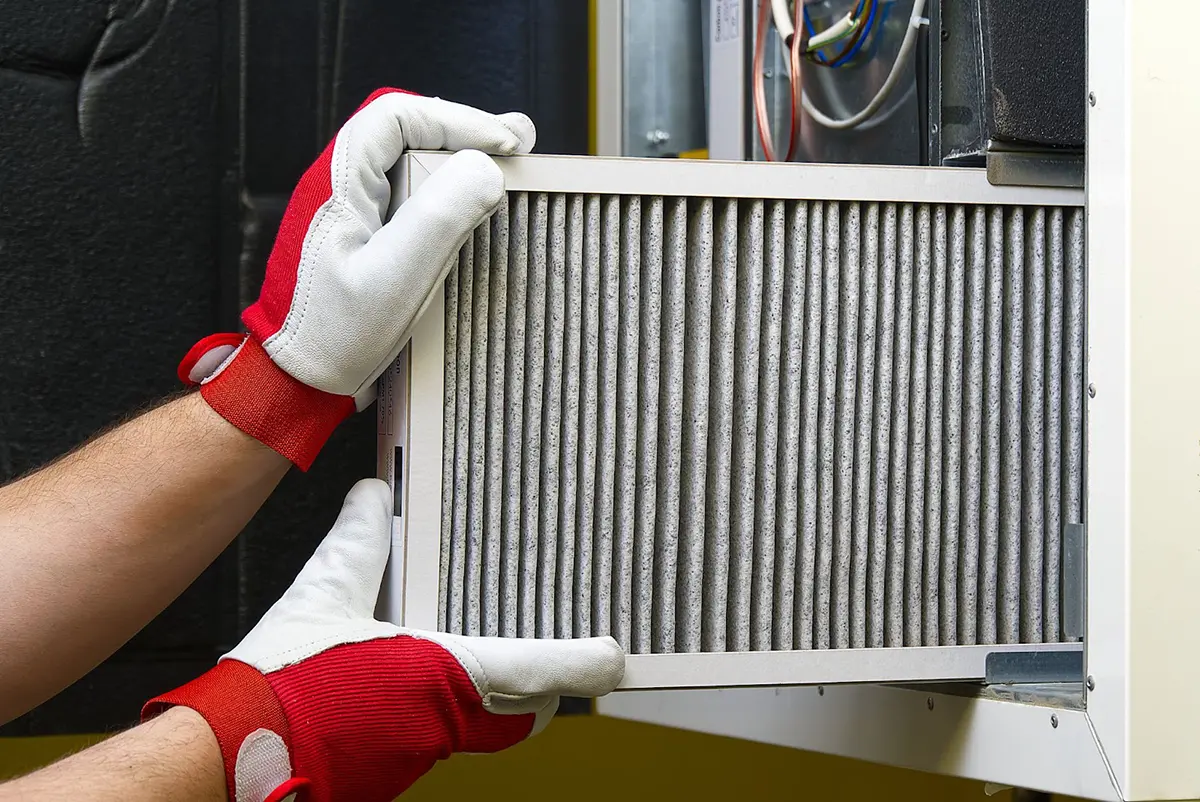
Replace filters
A furnace, which runs on an air intake system, is the primary heating system in many homes. This system has a filter that keeps other particles and dust away from your furnace. If you use it frequently, you must change the filters regularly.
Ensure that your air quality is cleaner and that your furnace will continue to run smoothly.
Double-check Carbon Monoxide Detectors
Security ought to come first. Ensure your carbon monoxide detectors operate properly by testing and replacing the batteries.
Close Air Leaks
Check for drafts around windows and doors, then close any. The HVAC system will function more effectively and keep a comfortable indoor temperature if it has proper insulation installed.
Test Heating System
Ensure the heating system is operating correctly by testing it before you need it. Contact an expert for a thorough assessment if you find any problems.
Winter
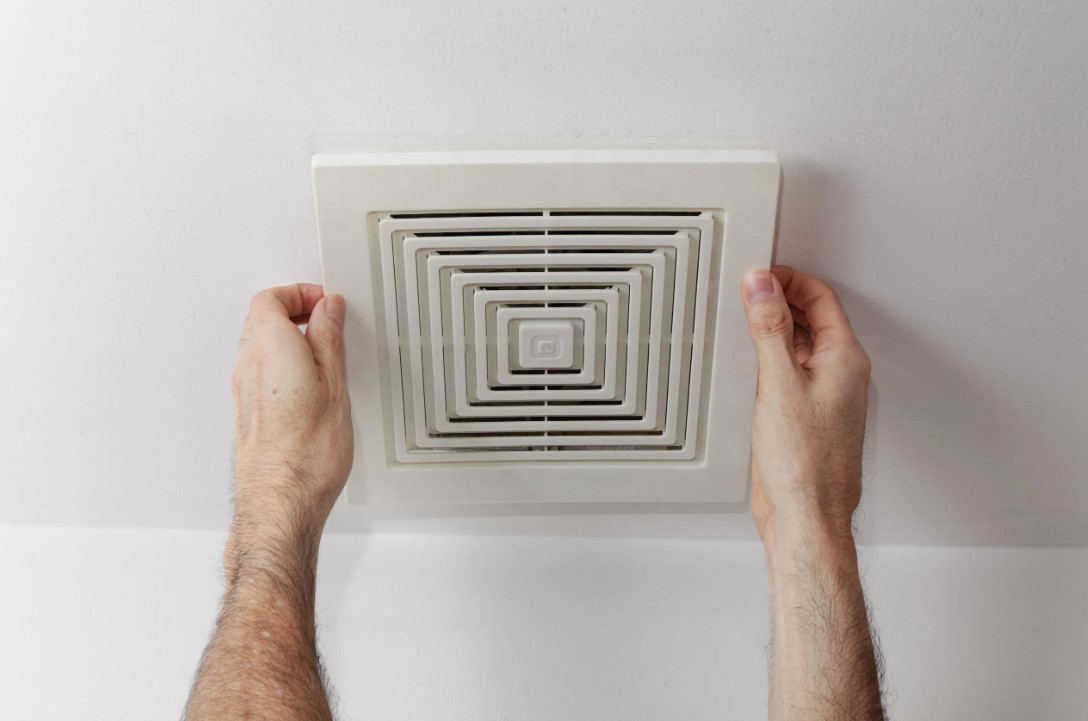
Examine Exhaust Vents
Ensure snow, ice, or other debris doesn’t obstruct the exhaust vents on the water heater and furnace. The buildup of carbon monoxide can be hazardous when vents are blocked.
Reverse Ceiling Fans
Operating ceiling fans at a low speed in reverse can help the heating system work less hard by pushing warm air downward and circulating it around the space.
Check Humidity Levels
The dryness of the winter air can impact the comfort and quality of indoor air. Consider installing a humidifier to keep your house at a comfortable humidity level.
Be Storm Ready
Power disruptions can result from winter storms. To maintain the operation of your HVAC system in an emergency, think about purchasing a backup generator.
Educate Tenants on Basic HVAC Maintenance

Educating renters regarding essential HVAC maintenance can guarantee effective system operation and prevent many common problems. Encourage tenants to regularly clean or replace air filters every one to three months. This can help maintain optimal air quality and system efficiency.
Also, it would be best to teach tenants how to maintain dust- and debris-free, clear vents and registers. Encourage them to report any strange sounds or problems with their performance immediately.
As a landlord, give your renters precise directions on operating the thermostat and remind them of the significance of maintaining a clear space around HVAC units. By being proactive, landlords can increase tenant satisfaction and the system’s lifespan.
Conclusion
Efficient HVAC management is important for satisfying tenants and protecting the property’s value. As a landlord, it is important to ensure the property’s HVAC systems function properly all year round by putting regular maintenance schedules into place, understanding system components, and taking quick action regarding repairs.
Partnering with reliable HVAC professionals and knowledge of recent developments in the field can help reduce management workloads even more. Generally, proactive HVAC system maintenance protects the landlord’s investment and improves tenant comfort, making worry-free HVAC management an essential component of profitable real estate investing.
